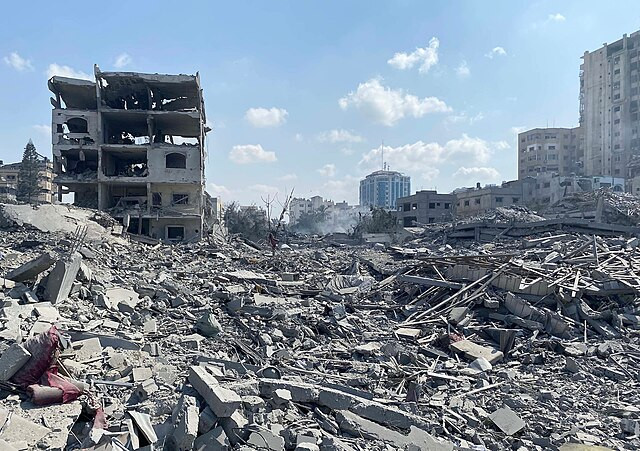Thousands of displaced Palestinians began their long-awaited return to northern Gaza on Monday after months of relentless bombardment and mass evacuations. Their journey, marked by exhaustion and uncertainty, follows a fragile ceasefire agreement between Israel and Hamas that had been delayed over a heated hostage dispute.
Scenes along Gaza's coastal road early Monday captured the human toll of the conflict. Men, women, and children trudged northward, carrying their remaining belongings in plastic bags and suitcases. Many traveled on foot, some barefoot or on crutches, while others piled into rickshaws, cars, and trucks loaded with tents and mattresses.
The return was originally slated for the weekend but was postponed after Israel accused Hamas of breaching the ceasefire agreement by failing to release civilian hostages, including 29-year-old Israeli citizen Arbel Yehud. Israel had demanded her release in the second round of hostage exchanges on Saturday. When Hamas failed to comply, Israel delayed opening the Netzarim corridor, the main passage into northern Gaza.
Hamas subsequently agreed to release additional hostages, including Yehud, on Thursday and Saturday, according to the Israeli Prime Minister's Office. The agreement cleared the way for the corridor's reopening on Monday, prompting cheers from displaced Palestinians waiting at roadblocks for days in the cold.
"We waited here for three days in the cold and hunger to return," said Sanaa Al-Qassab, 45, who walked with her daughter along the sandy route, heavy bags slung over her shoulders. "I am very happy we will meet our families."
The months-long conflict, which began in October 2023 after a Hamas-led attack on Israel killed 1,200 people and saw 251 hostages taken, has left much of Gaza in ruins. Local health officials report more than 47,000 Palestinian casualties from Israeli airstrikes, with the war displacing nearly 90% of Gaza's population.
For many returning residents, the prospect of reuniting with loved ones brought a mix of joy and despair. Eyad Al Masri, who was displaced from Beit Hanoun, said he was unsure what awaited him. "I'm taking these four bags and going back to my house. I don't know if it is still standing or not," he said.
Others echoed similar sentiments. Ghada, a mother of five, told Reuters she had barely slept in anticipation of returning. "At least we are going back home. Now I can say the war is over, and I hope it will stay calm," she said.
While many embraced the return, political tensions over the ceasefire and reconstruction efforts remain high. Israeli Defense Minister Israel Katz reaffirmed that the ceasefire would be "firmly enforced," warning that violations would have severe consequences. Meanwhile, Hamas declared the return of displaced Palestinians as a "victory" over Israeli plans to uproot them.
Adding to the tension were controversial remarks by U.S. President Donald Trump, who proposed relocating Gaza's residents to neighboring countries like Jordan and Egypt. Trump called Gaza a "demolition site" and suggested working with Arab nations to build housing elsewhere.
Jordan and Egypt vehemently rejected the idea, with Jordanian Foreign Minister Ayman Safadi stating, "Our refusal of displacement is a steadfast position that will not change. Jordan is for Jordanians, and Palestine is for Palestinians." Egypt's Ministry of Foreign Affairs echoed these sentiments, warning that forced displacement would destabilize the region further.
Trump's comments drew sharp criticism from Palestinian leaders, human rights groups, and international observers. The Palestinian Presidency condemned the proposal as a violation of red lines, comparing it to the Nakba of 1948 when hundreds of thousands of Palestinians were displaced during Israel's creation.
Human Rights Watch described the proposal as "an alarming escalation in the ethnic cleansing of the Palestinian people." Meanwhile, the Council on American-Islamic Relations called the plan "delusional and dangerous nonsense," emphasizing that Palestinians are unwilling to abandon their homeland.
While Israel's far-right politicians supported Trump's proposal, including Finance Minister Bezalel Smotrich, who called for "out-of-the-box solutions," many observers warned that such plans could derail any future prospects for peace.




